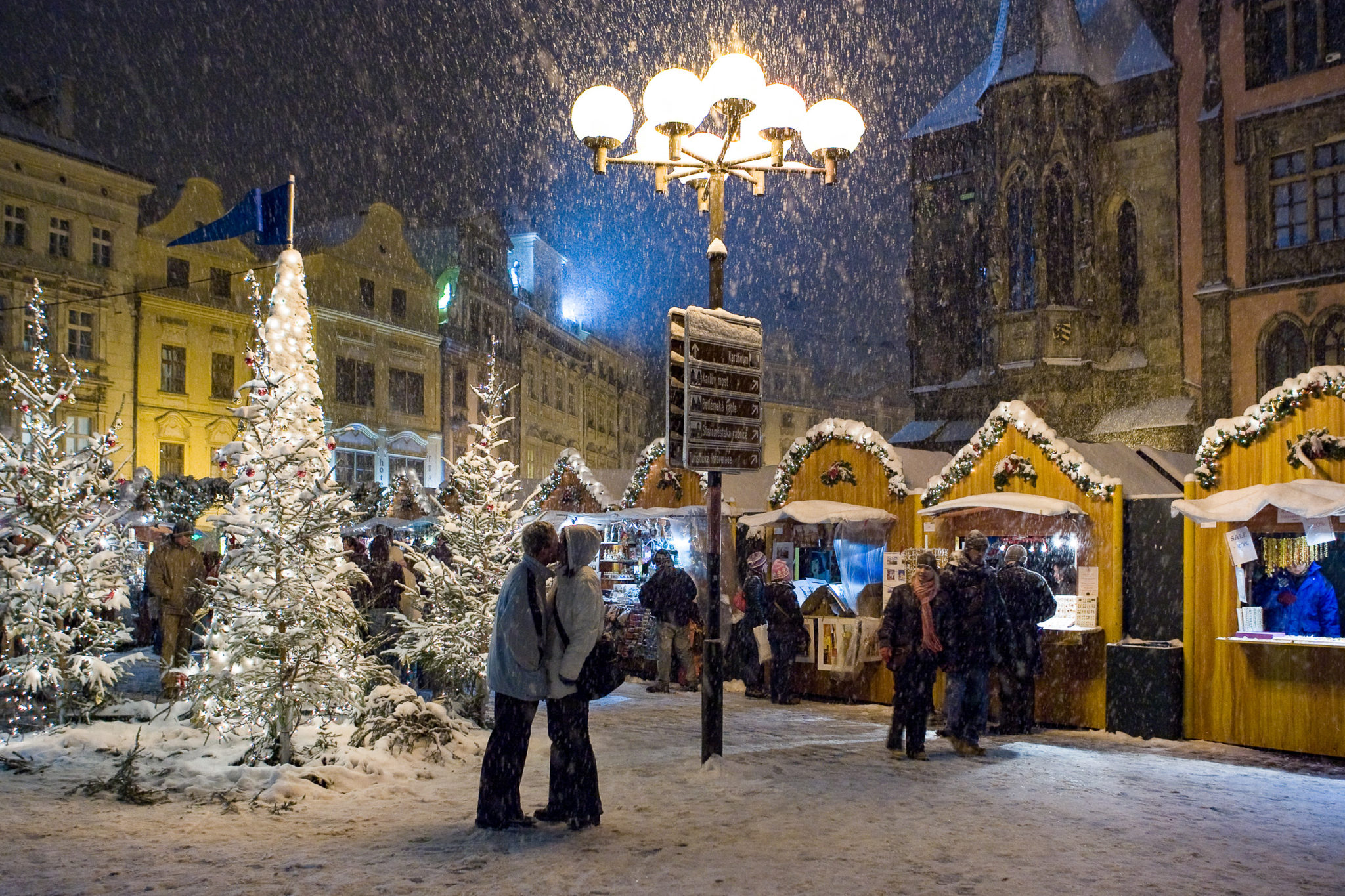December 24 (Christmas Eve)
For many, December 24 (Štědrý den) is the most enjoyable day of Christmas holidays. Its Czech name literally means “Generous Day”, probably for the wealth of food that has traditionally been served for Christmas dinner and fed to household and farm animals. Even poor families would make sure that their plates were full on this one day of the year.
December 24 is Adam and Eva’s name day. The Christmas tree is decorated with traditional Czech Christmas ornaments in many households and preparations are made for the most festive dinner of the year. Christmas Eve is associated with many superstitions that usually relate to life, love, and destiny that awaits one in the year to come. According to one Czech Christmas custom, one is supposed to fast all day to see the “golden piglet” (zlaté prasátko) in the evening. Visit our Czech Christmas Customs and Superstitions page for a detailed list.

Christmas Dinner
Dinner is served after sunset (traditionally, it should not be served until after the first star has come out) and consists of carp and potato salad, sometimes preceded by mushroom, sauerkraut or fish soup. Did you know that carp can supposedly be prepared a hundred different ways? Christmas carp is specially raised in manmade ponds and then sold from large tubs placed on the streets and town squares a few days before Christmas. You will not see this sight at any other time of the year. Some families keep their carp in the bathtub for several days as a temporary pet for their children… Dinner can be finished with dessert, such as apple strudel. A traditional Christmas bread called vánočka (similar to the Jewish challa) used to be a part of the Christmas dinner in the past but today it has largely lost its Christmas connotation and is available year-round.

Christmas Presents
After dinner, everyone around the table may sing Christmas carols before moving to the Christmas tree, which is all lit up and beautiful. By then, presents have been placed under the tree. Czech children believe that Christmas gifts are brought by Baby Jesus (Ježíšek) who comes into the room through the window to leave the presents. Unlike Santa Claus, Baby Jesus is a rather abstract figure with no particular physical image attached to him, and no one knows where he lives. Just like Santa though, he receives wish-list letters from Czech children a few weeks before Christmas.
Midnight Mass
Some people end Christmas Eve by attending the midnight mass (půlnoční mše) at a local church. It usually starts at midnight but some churches hold it earlier, such as at 10 p.m. There can also be a Christmas Mass for children in the afternoon.
December 25 – 26
Czech Christmas stretches over December 25 and 26, which are also referred to as the First and Second Christmas Holidays, or the Christmas Feast (Boží hod vánoční) and St. Stephen’s Day (Sv. Štěpán). On St. Stephen’s Day, children, students, teachers, and the poor used to go around people’s homes singing Christmas carols. Nowadays, families stay at home and relax or visit relatives and friends to share the special time.
Wish someone a Merry Christmas or send a Christmas card in Czech!